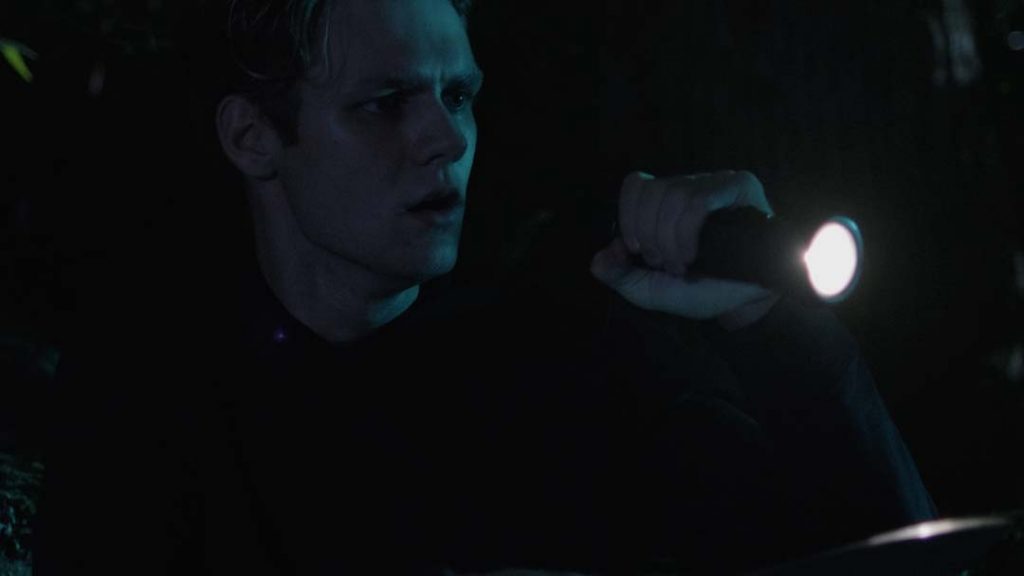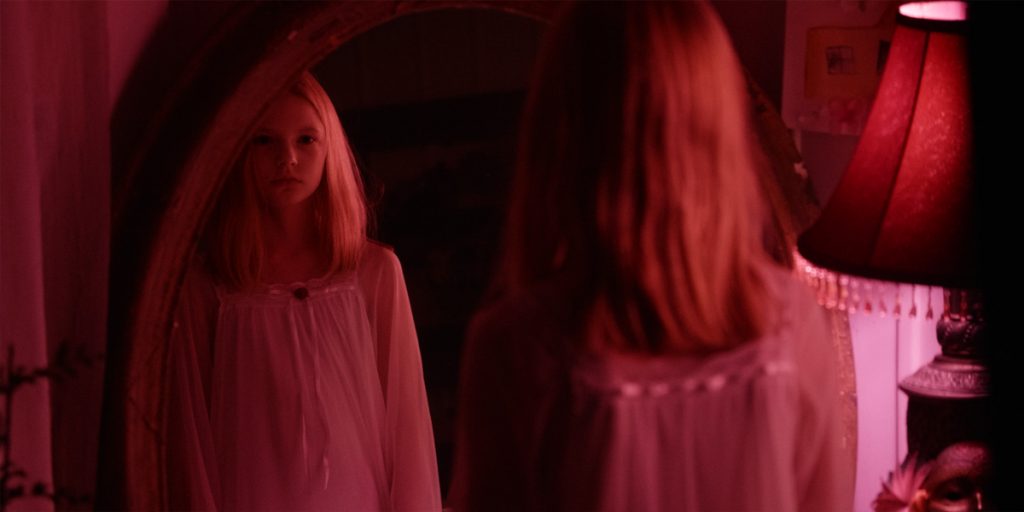Where’s Rose is a chillingly relevant piece of horror that offers intricate social commentary about trauma, grief and the repressed psyche.
Social horror has become one of the genre’s most prominent subdivisions in recent years, with swarms of filmmakers trying their hand at crafting stories that subvert tradition and make us critically assess the world we live in through typical horror techniques. John Mathis’ Where’s Rose is the newest example of this, telling the story of a teenage boy forced to cope with the presence of a supernatural evil in his home in the wake of his younger sister’s disappearance. The film is extremely well-made, with plenty of haunting visuals and thoughtful direction that strongly elevates the admittedly awkward dialogue and story progression. It manages to keep you on the edge of your seat throughout with its eerie atmosphere and compelling mystery, even if the true meaning of the story doesn’t become clear until the twisted final act.
Where’s Rose follows Eric Daniels (Ty Simpkins) as he prepares to leave his hometown and move to college, before his younger sister Rose’s (Skyler Elyse Philpot) disappearance throws his family into chaos and grief. After days of searching Rose returns home, but Eric quickly realises that the girl who claims to be his sister is actually someone – or something – much more sinister. The film quickly establishes this central conflict early on, so the rest of its short runtime can be spent exploring the developing relationship between Eric and his ‘sister’, alongside the devastating effect that this event has on his family and their domestic equilibrium. It’s an extremely interesting film that critically explores the effects of such a sudden and unexpected trauma on both the individual and the family spheres.
At the heart of Where’s Rose, in spite of the title’s focus on his sister, is Ty Simpkins’ Eric. The film closely follows his character throughout everything that happens, taking time to analyse and dissect exactly what he’s thinking and feeling at all times. This is partly due to Simpkins’ great performance, and the way that he manages to embody all the reservations and anxieties that come with being a teenager, but it’s also due to the restrained way that the story unravels around him. It’s a very unusual structure for a horror, often sacrificing the traditionally frightening development of suspense for a more reserved exploration of character and psychology, but it admittedly works really well for the style and atmosphere that it’s going for.

A lot of the film’s success hinges on a dramatic third-act reveal (which won’t be spoiled here!) that brings into question the validity of everything we’ve seen up to that point and clarifies exactly what message the film is trying to put across. It definitely adds an extra layer to the film’s story and will probably preserve it in the audience’s mind for a while longer after viewing, but withholding this information from the viewer and keeping them mostly in the dark for the entire runtime does definitely hold it back from being as engaging and immersive as it could have been. Films that utilise plot twists effectively often establish a narrative that we believe to be true, until the twist comes along and subverts all our expectations – Where’s Rose decides instead to give us almost no information along the way, which makes the film constantly feel like it’s missing a part that we aren’t given access to until the last second.
However, Mathis’ direction here is astounding, and definitely the best technical aspect of the film. The way he is able to assert such a haunting atmosphere into what is ultimately a family drama is seriously impressive, and it’s hard to believe that this is his debut feature. He frames the shots so particularly and precisely, placing the audience into the world that he creates – and making it a viscerally frightening experience when it needs to be. He often focuses on the reactions of other characters over the actual horror pieces themselves, which makes this feel a lot more grounded in reality than you might expect for a story about supernatural creatures and family hauntings. Where’s Rose may not be the most consistently captivating story, but it displays a level of talent and precision that shows huge promise for both director Mathis and the future of the social horror subgenre.

